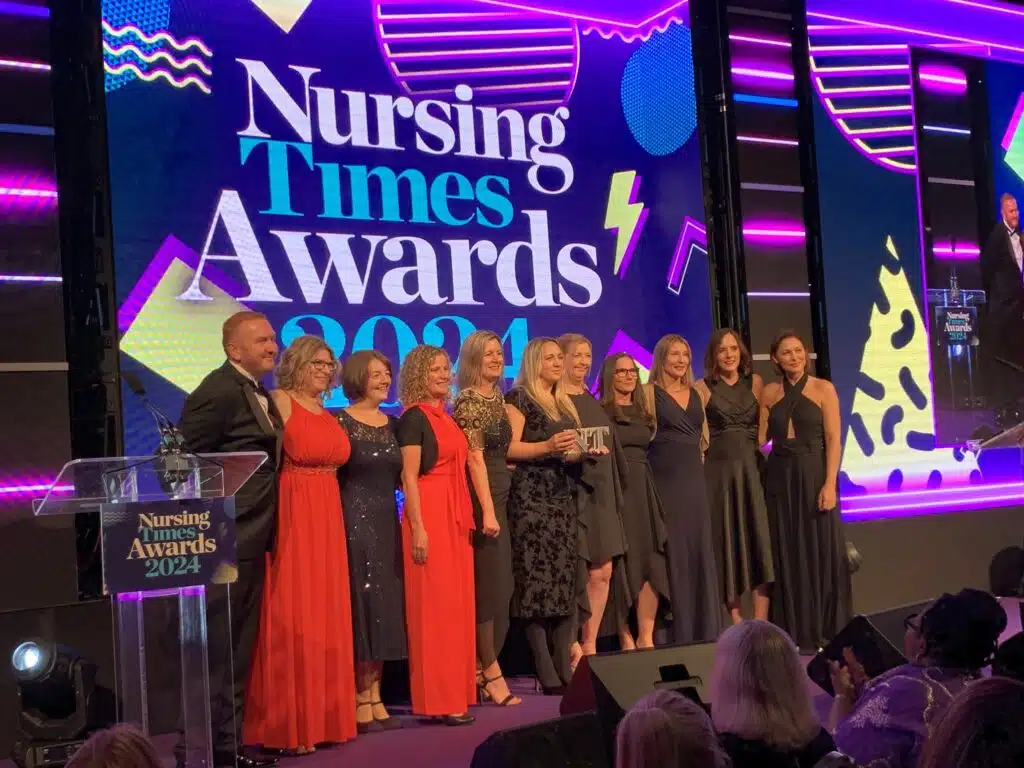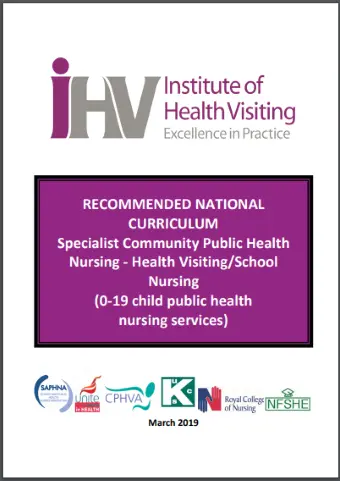Last night, the 0-19 Research Network were honoured to receive recognition for their fantastic achievements as “winners” of this year’s Nursing Times Award for Public Health Nursing at a glitzy award ceremony held at the Grosvenor House Ballroom, in London.
Winning this prestigious award is very well-deserved! And down to the sheer determination, grit and passion of the network leaders, and its members, who have overcome many obstacles in their efforts to strengthen research capability and capacity in both health visiting and school nursing. The 0-19 Research Network has grown considerably since it was originally established in 2013 as the Yorks and Humber 0-19 Clinical Research Network (CRN). The project aimed to:
- Support and increase the participation and recruitment of children and families in public health research, with a focus on those underserved populations (research delivery).
- Increase research engagement and capacity of public health professionals working with the 0-19 age group (research capacity building).
The Network has achieved significant impact, evidenced in a recent evaluation, and also provides a great example of nurse leadership and collaborative working between both health visiting and school nursing practitioners who are united in their goals to improve the health and wellbeing of babies, children, young people and families through research and evidence-driven practice.
To achieve these ambitions, and reduce ever widening health inequalities, we need to transform services using the best available evidence of ‘what works’. This requires more 0-19 research! The 0-19 Research Network is leading the way and inspiring new researchers to embark on exciting careers in research.
The Network is led by the inspirational Louise Wolstenholme who is the 0-19 Lead for Research (Education & Development) & Health Visitor at Sheffield Children’s NHS Foundation Trust and programme management support was provided by Victoria Jackson, Senior Programme Manager at the iHV. Other partners include the School and Public Health Nurses Association (SAPHNA), Rotherham Doncaster and South Humber NHS Foundation Trust (RDaSH), Humber Teaching NHS Foundation Trust, and Leeds Beckett University. As a lead partner, the iHV is proud that the project has been recognised for its success in building research capacity in the 0-19 workforce.
Attending the celebration last night, to collect the award on behalf of the 0-19 Research Network were:
- Louise Wolstenholme – 0-19 Lead for Research (Education & Development) & Health Visitor, Sheffield Children’s NHS Foundation Trust
- Tracey Long – Nurse Consultant and NIHR Senior Research Leader: Nursing and Midwifery, Rotherham Doncaster and South Humber NHS Foundation Trust
- Vicky Gilroy – Director of Innovation and Research, Institute of Health Visiting
- Claire Chilton, Health Visitor and 0-19 Research Lead and Clinical Lead for Research (IRIS) Humber and North Yorkshire ICB, Humber Teaching NHS Foundation Trust
- Janet Greenwood, Specialist Nurse – Special Educational Needs & Disabilities 0-4 years/ Research lead, Bradford District Care NHS Foundation Trust
- Lisa Manlove, Team Leader – Manor Darnall Health Visiting Team, Sheffield Children’s NHS Foundation Trust
- Heidi Fewings, 0-19 Service Manager, Hull 0-19 Integrated Public Health Nursing Service
- Sarah Lawley, Nursing Fellow, 0-19 Duty Practitioner (Health Visitor), 0-19 Research Lead, Locala Health & Wellbeing
- Gilly Chalk, Specialist Health Visitor Perinatal and Infant Mental Health, 0-19 Research Champion, Healthy Child Service, City of York Council.
Commenting on the award, Vicky Gilroy, iHV Director of Innovation and Research said:
“Being part of the team to receive this award gives me great pride. The collaboration on the 0-19 Project showcases the strength of Public Health Nurses as passionate leaders in promoting research engagement and building research capacity. It has been a privilege to be part of this collaborative project. The NT award is the icing on the cake in recognising the contribution we have all made to public health nursing.”





